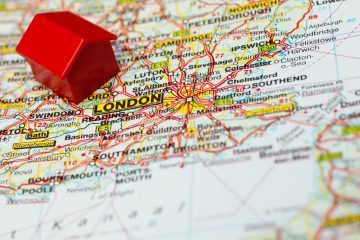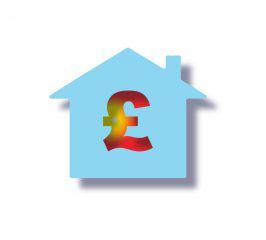The latest UK House Price Index from the Office of National Statistics (ONS) has been released. UK house prices have shown a slight yearly increase, the lowest growth since September 2012.
The main points of the report include:
- UK average house prices increased by 0.7% over the year to October 2019 to £233,000.
- Average house prices increased over the year in England, to £249,000 (0.5%); in Wales, to £166,000 (3.3%); in Scotland, to £154,000 (1.4%); and in Northern Ireland, to £140,000 (4.0%).
- The annual increase in England was driven by Yorkshire and The Humber (3.2%).
- The lowest annual growth rate was in London (negative 1.6%), followed by the North East (negative 1.1%).
Andrew Southern, chairman of property developer Southern Grove, has shared his comments: “This is the first house price index since the election and it’s time to say farewell to a read-out that has been wracked by indecision and self-doubt for too long.
“The UK HPI has the longest lead time of all the indices and Boris Johnson has taken his boot and stamped a use-by date all over the Land Registry’s dial.
“You can expect the market to start deciding which way it really wants to move now and that new direction will show itself even more in the New Year.
“One near certainty is that transaction volumes should start to recover, though first-time buyers may be a little afraid that prices could begin to advance again in tandem.
“The basic equation here is that, with the exception of first-time buyers, there won’t be anyone sensible in the property world who won’t welcome the injection of certainty that the election has delivered, no matter what your political persuasion.
“Even they would do well to remember the effect so much uncertainty has had already on house building, trimming developers’ forecasts and, with it, their risk appetites. Seeing the back of that is just as important to today’s young.”
Andy Sommerville, Director at Search Acumen, comments: “Where there is growth there is life. And although we haven’t seen much in the way of house price growth, today’s statistics show life is returning to the housing market – particularly in areas outside of the Capital.
“These latest ONS statistics are from October and we expect to see an even greater uplift at the end of the quarter, particularly following the recent election. The stock market rally we have just witnessed and a majority government drawing a line under Brexit uncertainty could be the shot the housing market needs to get back to health.
“However, we must not be complacent – more of the same “wait and see” approach would jeopardise the recovery. Instead the Government and private firms needs to be forthright in their commitment to supporting smart solutions to advance the digitalisation of the property industry. Unleashing Britain’s potential needs more than fine words. It requires breaking down the barriers to data accessibility and investment.”
John Goodall, CEO and Co-founder of buy-to-let specialist Landbay, said: “Though another set of poor growth figures is disappointing and a seven year low is certainly cause for concern, now is the time to look to the future. Boris Johnson’s election victory should pave the way for a stronger UK economy, and thus a healthier housing market, as we break away from political ambiguity.
“The ‘Boris bounce’ is expected to put an end to the recent stalemate in the property market, offering confidence to buyers and sellers alike to make a move. Demand has been humbled by instability, so 2020 should bring an early ‘spring bounce’ as those who have sat on their hands are spurred into action.”
Lucy Pendleton, founder-director of independent estate agents James Pendleton, comments: “The spinning compass of uncertainty and doubt have been dislodged by the north star of a new PM, and the market has reacted immediately.
“As a result, the tired and frustrated reality that is still faintly visible in this Land Registry report reflects a status quo that is already a distant memory.
“Not yet visible is the Boris bounce in house prices we all sense is already well underway. The UK house price index has well and truly been overtaken by events.
“The index will now spend the next two months going through the motions while it catches up with history. Meanwhile, there’s every sign on the high street that buyers and sellers are returning to the fold.
“The UK is certainly experiencing a resurgence in activity but we won’t know for a couple of months whether, on balance, this will begin to push prices higher or whether greater supply will have a moderating influence while brokers and agents enjoy a pick-up in volumes.
“New enquiries for property picked up the day of the election result and foreign buyers are matching their domestic counterparts for renewed enthusiasm.”
Shaun Church, Director at Private Finance has said: “House price growth has almost ground to a halt, with the lowest annual increase in prices seen in more than seven years.
“A slump in demand due to a wait-and-see approach in response to Brexit has stifled housing market activity throughout the year, with this having a direct impact on house prices. Though less comforting for homeowners looking to see a return on their investment, buyers will benefit from this long-awaited improvement in housing affordability.
“However, the property market could well be entering a new, more active phase of growth. Post-election, a degree of certainty has been injected back into the national psyche, and a release of pent-up property demand is expected as a result.
“Those looking to make a move in the New Year should act quickly to snap up cut-price properties while they’re still around. Buyers should also consider locking into today’s record-low mortgage rates to guarantee affordable repayments for the foreseeable future, as these, too, aren’t guaranteed to last forever.”






